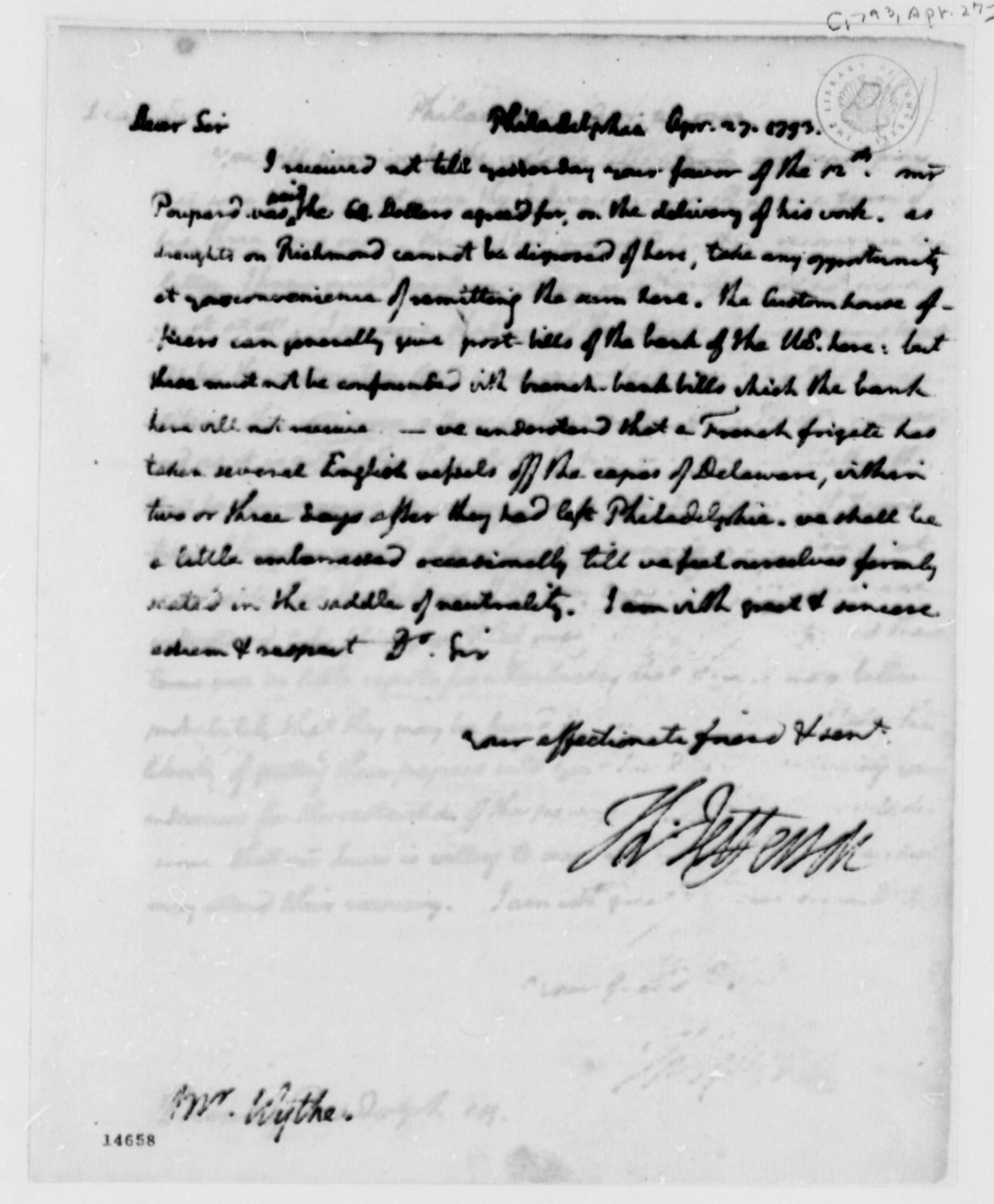Thomas Jefferson to Wythe, 27 April 1793
Thomas Jefferson writes to say that James Poupard, the man who engraved Virginia's seal, has received the 64 dollars, but was unable to deposit it because the bank in Philadelphia will not take branch-bank bills. Jefferson does say, however, that the Custom house officers can "generally give post-bills of the US" and asks for Wythe to send the money when he can. Jefferson mentions that he has heard that a French frigate has captured some English vessels near Delaware and since America had decided to stay neutral in the war between Britain and France[1], the US did not get involved. Jefferson says that until the US is "firmly seated in the saddle of neutrality", it will be hard to not interfere with actions occurring so close to America.

"Thomas Jefferson to Wythe, 27 April 1793." Image from the Library of Congress, The Thomas Jefferson Papers.
Letter text
Philadelphia, Apr. 27. 1793.
Dear Sir,I received not till yesterday your favor of the 12th. mr Poupard was paid the 64. Dollars agreed for, on the delivery of his work. as draughts on Richmond cannot be disposed of here, take any opportunity at your convenience of remitting the sum here. the Custom house officers can generally give post-bills of the bank of the US. here. but these must not be confounded with branch-bank bills which the bank here will not receive. — we understand that a French frigate has taken several English vessels off the capes of Delaware, within two or three days after they had left Philadelphia. we shall be a little embarrassed occasionally till we feel ourselves firmly seated in the saddle of neutrality. I am with great & sincere esteem & respect Dr. Sir Your affectionate friend & servt.